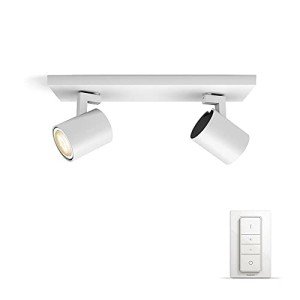Why You Should Focus On Improving Buy Energy-Efficient Lighting UK
Buy Energy-Efficient Lighting in the UK: A Comprehensive Guide
In the last few years, the urgency of transitioning to more sustainable practices has led many customers and companies to make mindful choices about their energy consumption. view website of the most impactful methods to decrease energy costs and carbon emissions is by selecting energy-efficient lighting. This article intends to notify readers about the benefits of energy-efficient lighting, types available in the UK market, and ideas for selecting.
Comprehending Energy-Efficient Lighting
Energy-efficient lighting refers to source of lights that take in less electrical power while supplying the same level of lighting as traditional lighting options. This decrease in energy use stems from advancements in technology, which have actually allowed the creation of lighting services that not just conserve energy but are also more resilient and flexible.
Advantages of Energy-Efficient Lighting
Cost Savings: Lower energy expenses make energy-efficient lighting an appealing option for both households and services. They may include a higher initial investment, however their durability and lowered energy intake lead to significant savings gradually.
Environmental Impact: By using less electricity, energy-efficient lights add to reduce greenhouse gas emissions. The shift away from nonrenewable fuel sources for electricity generation makes a considerable distinction in mitigating environment change.
Improved Light Quality: Modern energy-efficient lighting, particularly LED and CFL, uses brighter, more constant light than older technologies like incandescent bulbs.
Kinds Of Energy-Efficient Lighting
When exploring energy-efficient alternatives, customers can select from various technologies. Here are some typical types found in the UK:
Type
Energy Usage
Life-span
Qualities
LED (Light Emitting Diode)
Very low
15,000 – 50,000 hours
Instant-on, dimmable alternatives readily available, high light quality
CFL (Compact Fluorescent Lamp)
Low
7,000 – 15,000 hours
More energy-efficient than incandescent, however may take time to reach full brightness
Halogen Bulbs
Moderate
2,000 – 4,000 hours
Enhanced efficiency compared to traditional incandescent; releases a warm light
Smart Bulbs
Varies based on usage
15,000 hours
Connects to smart home systems; programmable and energy trackers
This variety invites consumers to make informed choices customized to their requirements.
How to Choose Energy-Efficient Lighting
Picking the best energy-efficient lighting can appear daunting due to the numerous choices available. To streamline the decision-making process, prospective purchasers ought to consider the list below elements:
Purpose of Lighting: Identify the primary usage of the lighting (e.g., ambient light, task lighting, or accent lighting) to figure out the appropriate type and intensity of light.
Lumens vs. Watts: Understand that lumens show brightness while watts procedure energy intake. The goal is to optimize lumens while minimizing wattage.
Color Temperature: Lighting is available in numerous color temperature levels, revealed in Kelvin (K). Consider the preferred atmosphere:
- Warm White (2700K) for comfortable areas
- Cool White (4000K) for workspaces
- Daylight (5000K+) for vibrant settings
Dimming Capabilities: If choosing LED or CFL lighting, ensure that the fixtures and bulbs work with dimmer switches if that is a requirement for the space.
Accreditation Labels: Look for energy effectiveness labels such as the Energy Saving Trust label or EU Energy Label, which indicate compliance with energy use requirements.
Where to Buy Energy-Efficient Lighting in the UK
Consumers in the UK can purchase energy-efficient lighting from various merchants. Some popular choices consist of:
- Online Retailers: Websites such as Amazon, eBay, and expert lighting websites often have a large choice and competitive costs.
- Home Improvement Stores: Chains like B&Q, Wickes, and Homebase offer in-store assistance for customers to make informed choices.
- Electrical Suppliers: Stores that concentrate on electrical products can offer expert recommendations customized to particular requirements, specifically for business purchasers.
Frequently Asked Questions about Energy-Efficient Lighting
Are energy-efficient bulbs actually worth the financial investment?
- Yes, while the in advance expense may be greater compared to traditional bulbs, their longevity and lower energy consumption deal substantial savings in the long run.
Do energy-efficient bulbs take time to reach complete brightness?
- Some types, like CFLs, might take a couple of minutes to warm up, while LEDs offer immediate bright light.
Can I use energy-efficient bulbs in existing fixtures?
- Most energy-efficient bulbs can be used in standard fixtures, but constantly inspect compatibility, specifically with dimmer switches.
What ecological advantages can I anticipate from using energy-efficient lighting?
- Lowered energy consumption leads to a lower need for electrical energy, which reduces greenhouse gas emissions, thus having a favorable effect on environment modification.
Changing to energy-efficient lighting not just helps to reduce electrical power expenses however also adds to a greener planet. By comprehending the types offered, understanding what to look for when making a purchase, and checking out reliable providers, UK customers can make knowledgeable choices that line up with their requirements. This small modification can result in substantial advantages for both their home or business and the environment.
Final Thoughts
As customers become significantly knowledgeable about their environmental footprint, the switch to energy-efficient lighting is a crucial action. By welcoming these innovations, people and businesses in the UK boost their sustainability efforts while enjoying the advantages of modern lighting solutions.
